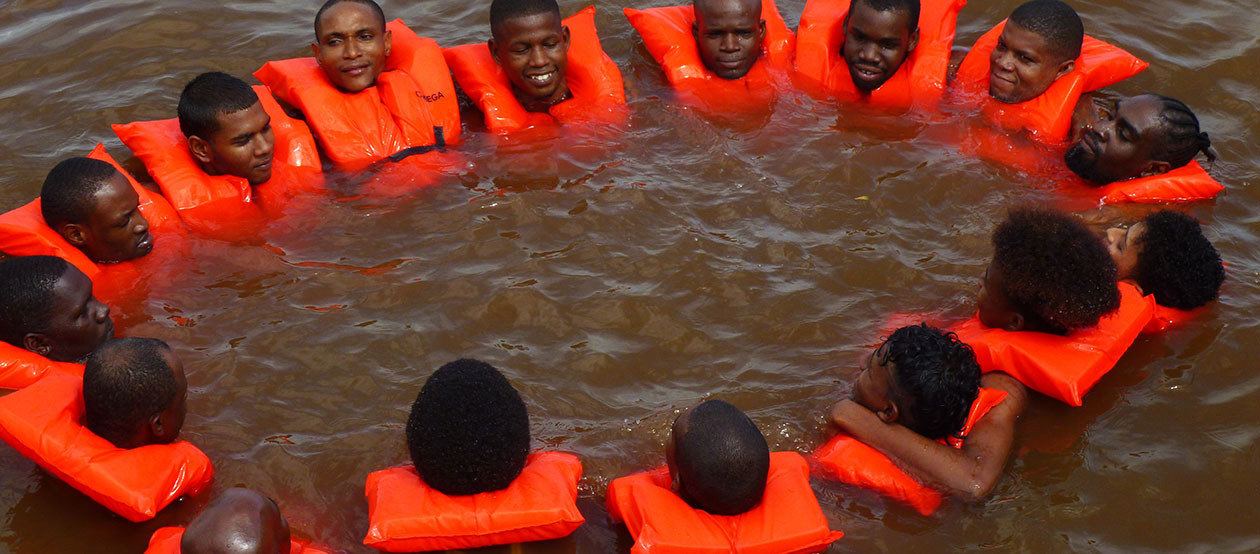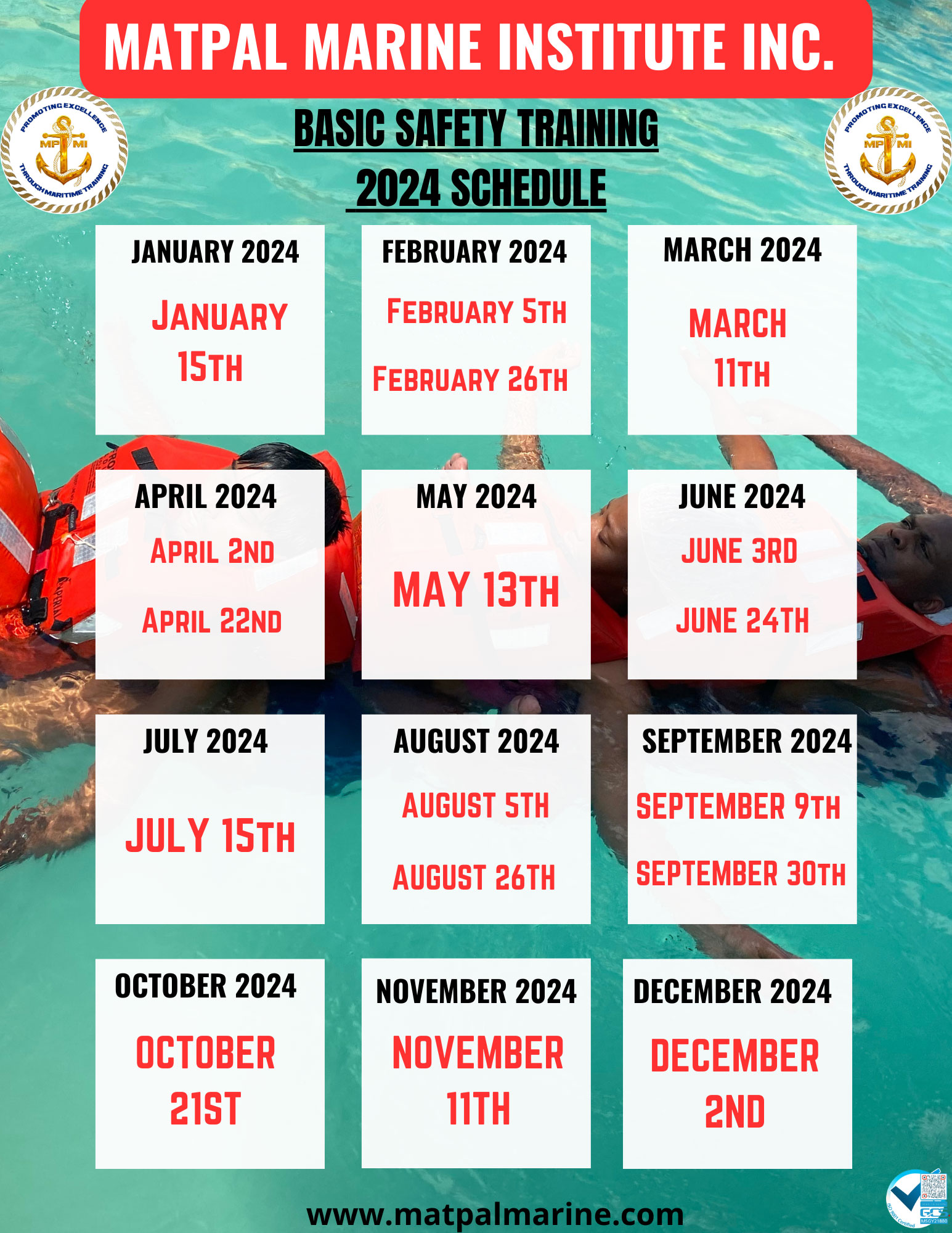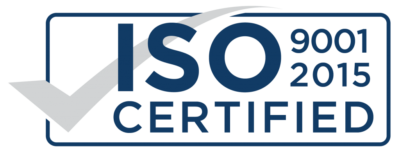

There are no specific entry standards or particular educational requirements for the training in this five-module model course. The training is mandatory for all prospective seafarers, who should complete this basic training before being assigned to any shipboard duties and is open to all seafarers who are to serve on board seagoing merchant ships.
2024 Schedule

Duration: Nine (9) Days
Modules:
- Fire Prevention and Fire Fighting
This course covers basic training in fire fighting so as to minimize the risk of fire and maintain a state of readiness to respond to emergency situations involving fire.
This model course aims to meet the mandatory minimum requirements for seafarers for familiarization, basic safety training and instruction in accordance with Section A-VI/1 of the STCW Code.
2. Personal Safety and Social Responsibilities
OBJECTIVE
Due to the vastly different environment on a ship as compared to ashore, this module is designed to prepare new recruits for a life at sea. Working on a ship can be a hazardous occupation for the uninitiated.
This module will give new seafarers an insight into the various elements of a ship and working procedures on board so that they adjust to the shipboard environment, and are better prepared to cope with any unforeseen circumstances. To that extent this module is planned to make their transition from a shore to a sea career smooth and give some knowledge of ship’s working before they actually step on board a ship.
A trainee successfully completing this module will be able to:
- Comply with emergency procedures
- Take precautions to prevent pollution of the marine environment
- Observe safe working practices
- Understand orders and be understood in relation to shipboard duties
- Contribute to effective human relationships on board ship
3. Elementary First Aid
PURPOSE
The purpose of this procedure is to meet the mandatory minimum requirements for knowledge, understanding and proficiency in accordance with section A-VI/1 of STCW 1995 Code. The course aims to provide the training for the candidates to provide elementary first aid on board ships.
OBJECTIVE
This syllabus covers the requirements of the STCW’95 Convention Chapter VI, Section A-VI/1, and Table A-VI/1-3. On meeting the minimum standard of competence in elementary first aid, a trainee will be competent to take immediate action upon encountering an accident or medical emergency until the arrival of a person with medical first aid skills or the person in charge of medical care on-board.
4. Personal Survival Techniques
This course covers basic training in Personal Survival Techniques so as to increase the ability to survive, and minimize the risk of causality in the event of ship abandonment.
The basic objective of this course is to ensure that a trainee after having completed the course, should be able to:
a. React in a correct manner during emergency situations.
b. Take measures appropriate to their own survival and to the survival of others.
c. Use survival equipment correctly.
d. Act in a manner that will prevent emergencies
5. Ship Security Awareness
On 01 January 2014, STCW Regulation VI/6 was entered into force. This regulation requires all seafarers on ships subject to the ISPS Code to have received security-related training and instruction relevant to their assigned duties on-board.
This course is intended to provide the knowledge required to enable personnel without designated security duties in connection with a Ship Security Plan (SSP) to enhance ship security in accordance with the requirements of Chapter XI-2 of SOLAS 74 as amended, the ISPS Code, and section A-VI/6-1 of the STCW Code, as amended.
Those who successfully complete this course should achieve the required standard of competence enabling them to contribute to the enhancement of maritime security through heightened awareness and the ability to recognize security threats and to respond appropriately.
